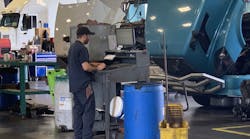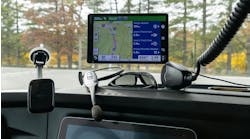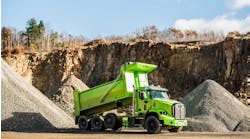Editor's note: This is the second part of an article looking at how cloud computing is changing the trucking industry. Read part one.
Like many trucking fleets at the time, Cargo Transporters did not have an information technologh (IT) staff when it was founded in the early 1980s. Today, the Claremont, NC-based company operates about 525 power units and ranks No. 205 on the 2019 Fleet Owner 500 list of the largest for-hire fleets.
It has six full-time IT employees, a number Chairman John Pope suggested may be one or two people fewer than he’d like to have on staff. The IT group generally supports all technology functions that are outside the truck, such as problems with communications or the document managing system.
Inside the truck, whether under the hood or a problem inside the cab, falls to the maintenance staff, which Pope said these days needs to be just about as tech-savvy as the more traditional IT staffers.
Ben Wiesman, president of Carrier Logistics, said the need to integrate a TMS with additional programs is needed because there really is not any available “unicorn solution.”
In recent years, LTL fleets have benefited from the use of dimensional pricing. While specialty functions can help them quickly update the weight and price of shipments, “it’s impossible to do everything.”
The end-to-end visibility of freight is one area that has benefited from increased integrations. But for fleets, this means there may be three or four visibility software providers from different high-volume shippers that may install software on your network and are extracting data.
However, at the same time, Mark Botticelli, chief technology officer for Trimble Transportation, said the new integration options available through the cloud can add complexity for a fleet’s security protocols, since it “has opened up huge opportunity for hackers to go have some fun.” He added: “All integrations mean fleets need to understand what data is being extracted and what it is being used for.”
In some cases, providers could obtain information far beyond just where a shipper’s freight is located. It could be gleaming information about network capacity attempting to sell that information.
“This means you have to work with a trusted organization that can protect you from security breach and is a good steward of data,” Botticelli said.
Mark Cubine, vice president of marketing and enterprise systems for McLeod Software, said it is crucial that suppliers offer “proven, supported off-the-shelf integration solutions for the third-party products you want to integrate.” He also stressed the importance of “a complete and detailed set of requirements” for an integration project and to do advance planning and communication on the scope of the project to avoid people becoming “the biggest obstacle to reaching those goals.”
Despite the potential dangers, Jai Ranganathan, vice president of products for KeepTruckin, sees cloud computing and integrations providing a “significant reduction in the operating costs” over the coming decade.
From in-cab cameras to more efficient dispatch software and predictive maintenance programs, there is a wealth of data that will be available for fleets that will “optimize so many parts of the business.”



